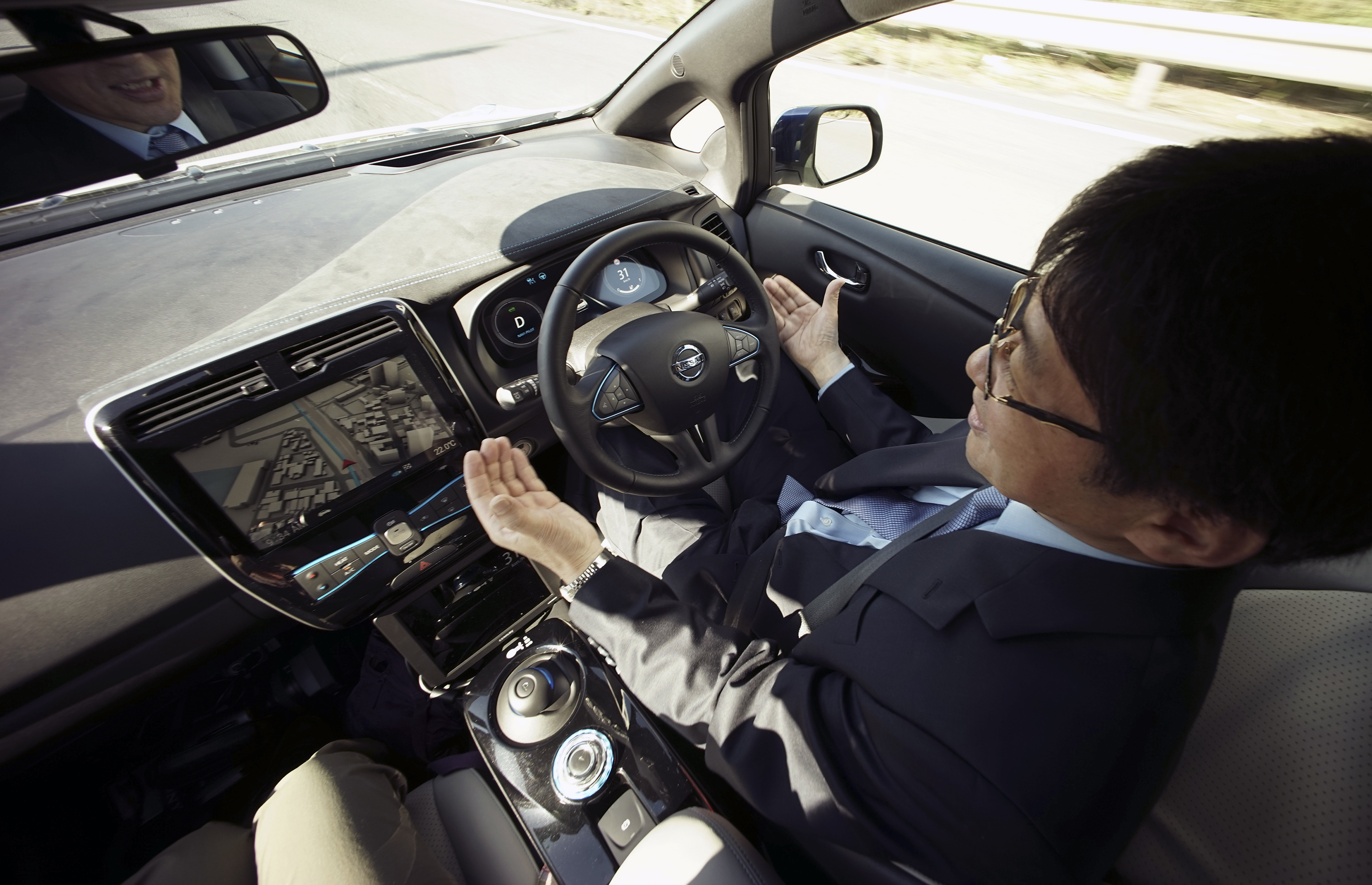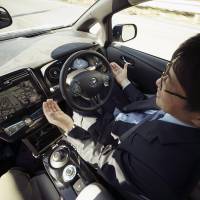Prime Minister Shinzo Abe will ease regulations to allow self-driving cars to be tested on public roads from fiscal 2017 with the aim of companies providing the service for the Tokyo 2020 Olympics.
Abe's decision, which came from a meeting with the head of Toyota Motor Corp. and other executives, could be a boon for Japan's auto sector as they catch up with Google in the development of self-driving cars.
Promoting the technology could also spark innovation and capital expenditure, two elements that economists say are essential if Japan wants to break out of its decades-long cycle of bouncing in and out of recession.
"Investment holds the key to higher productivity, and based on this investment we can take the lead in sparking the next industrial revolution," Abe said on Thursday.
Toyota, Nissan Motor Co. and Honda Motor Co., all hope to bring a car to market around 2020 that the driver can switch to autopilot mode and want to use the Tokyo Olympics as a platform to unveil their cars of the future.
This vision should become easier to realize now that Abe has come out in support of the plan, because this commits the government to scaling back Japan's often onerous regulations, a government official told reporters.
The government is not planning to offer subsidies related to the development of self-driving cars, the official said.
Abe will also ease regulations to allow small drones to deliver packages in three years, which could encourage innovation in another field that Japan has lagged behind in recent years.
Abe's administration is trying to revive its economic agenda by focusing on ways to get companies to increase domestic capital expenditure.
Increased business investment is important because this will increase productivity, create jobs and make it easier for wages to rise, economists say.



















With your current subscription plan you can comment on stories. However, before writing your first comment, please create a display name in the Profile section of your subscriber account page.